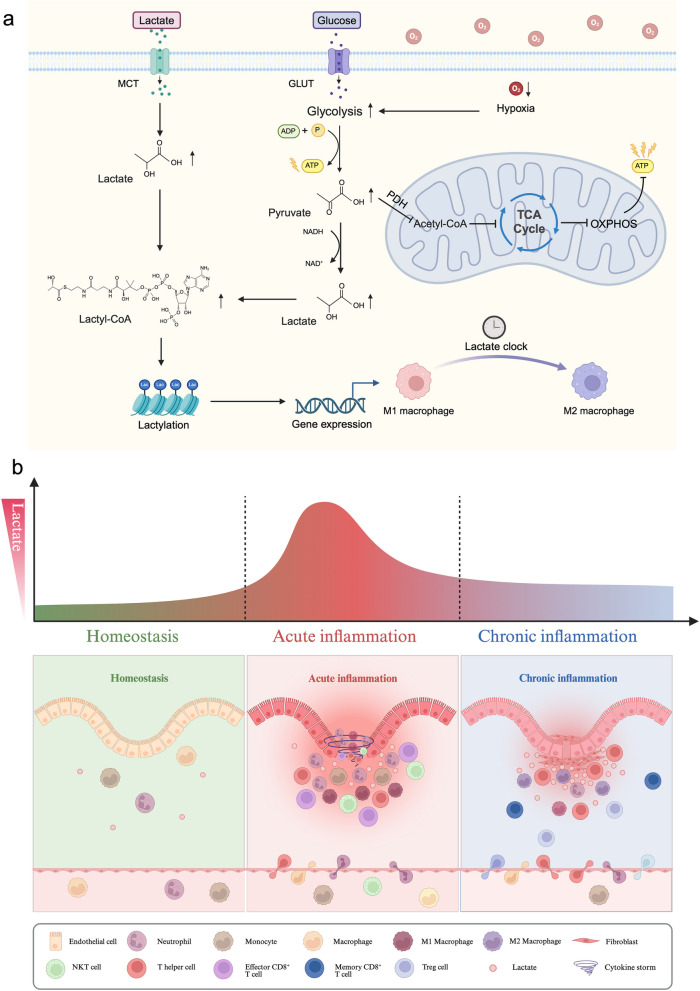Fig. 6.
Schematic diagram showing the role of lactate metabolism in the inflammatory microenvironment at specific time points. a Lactate metabolism is implicated in the TCA cycle, lactylation, and epigenetic alterations based on the ‘lactate clock’ during the inflammatory response. Lactate can be generated intracellularly by glycolysis, or extracellular lactate can be transported in by MCT1. Following lactate accumulation, lactate is converted to lactoyl-CoA, which is involved in lactylation and drives epigenetic changes. b Lactate mediates the dynamic changes in inflammatory immune cells during different inflammatory periods. As a consequence of the lactate shuttle, lactate, which is transported by specific receptors, induces lactylation and epigenetic remodelling, alters various inflammatory immune cells, and exerts proinflammatory or anti-inflammatory effects in a dynamic time-dependent manner to help maintain inflammatory microenvironment homeostasis.

